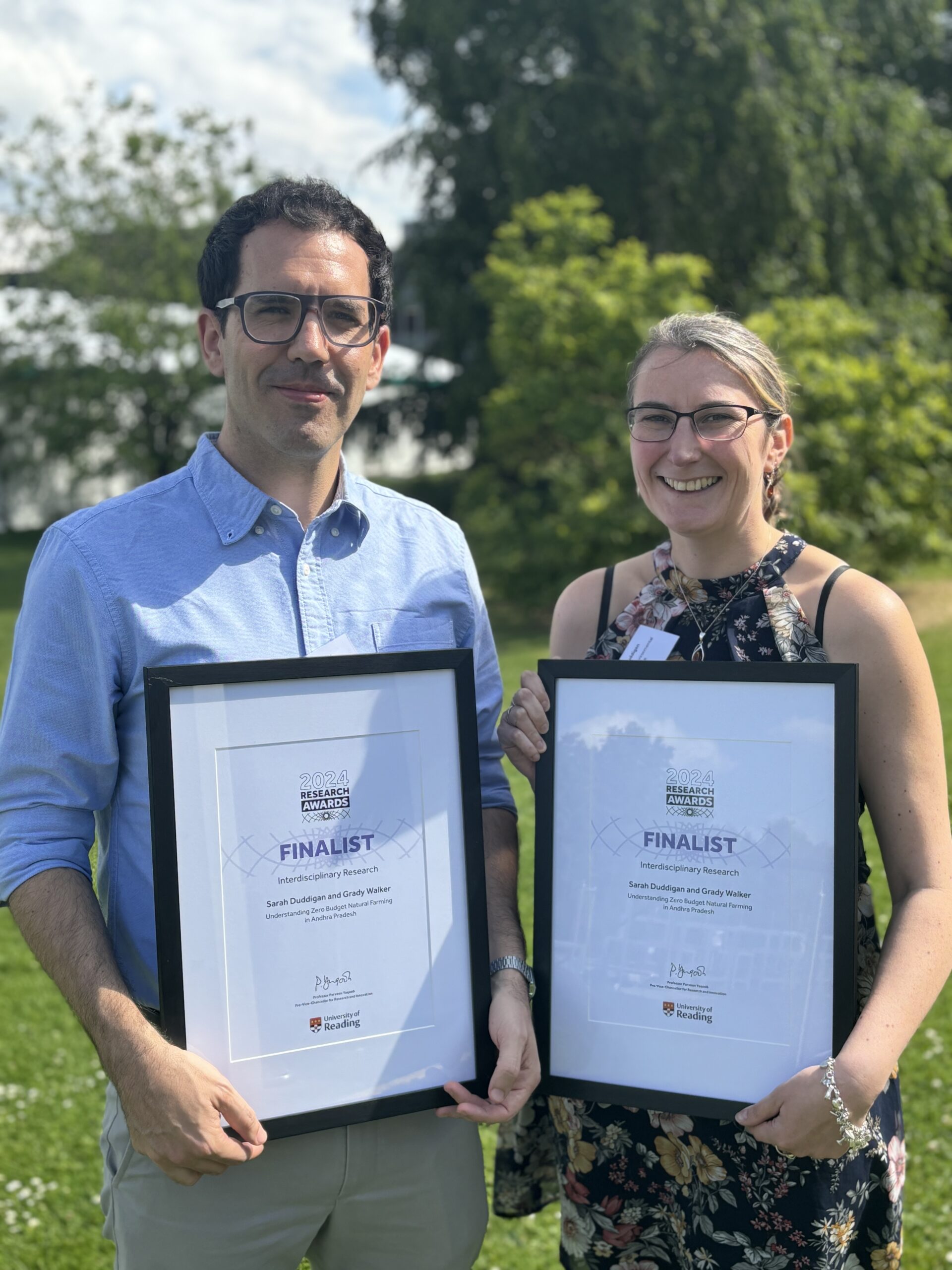We are delighted to announce that a Global Development Division research project, Understanding Zero Budget Natural Farming in Andhra Pradesh, has emerged as a finalist in the interdisciplinary research category of the prestigious 2024 University of Reading Research Awards. The UoR Research Awards celebrate excellent research taking place across the university that addresses real-world problems using interdisciplinary approaches, is built on partnership and collaboration, and engages a wide range of audiences. This year’s awards included a new interdisciplinary research category to recognise individuals or teams who undertake original and innovative interdisciplinary or multidisciplinary research and received a number of high-quality entries on a broad range of topics from across the university. We are excited to see the Natural Farming in Andhra Pradesh, India, project emerge as a finalist in this competitive research award.
The Natural Farming project is a collaborative study between the University of Reading and local partners, led by Rythu Sadhikara Samstha (RySS) in Andhra Pradesh, India. Taking an innovative interdisciplinary approach that combines soil and social sciences, this study has revealed a new understanding about the effectiveness of zero-budget natural farming. High levels of farmer debt and the phenomenon of farmer suicides in India have made finding low-cost agricultural strategies fundamental to rural wellbeing and development. This is combined with increasing environmental changes, particularly soil degradation, which undermines effective agricultural production. Zero Budget Natural Farming (ZBNF) is a grassroots agrarian movement in Andhra Pradesh, India. It is a low-cost, locally sourced natural farming method that promotes chemical-free farming to bolster smallholder farmers’ resilience. By providing a holistic approach to support the case for its expansion across Andhra Pradesh in India, both the land and the farmers who work it will benefit.
An interdisciplinary team from the University of Reading, led by soil scientist Dr. Sarah Duddigan and social scientist Dr. Grady Walker, has been developing an evidence base to understand the effectiveness of the ZBNF approach. Through a combination of controlled field experiments and participatory photography, their research considered the motivations behind the adoption of ZBNF. It engaged with over 150 smallholder farmers and young research fellows who actively participated in data collection and analysis, as well as other local stakeholders such as Women’s Self-Help Groups.
The soil science investigations demonstrated how ZBNF enhances soil moisture retention and improves yield while reducing expenditure. In parallel, the participatory photography revealed that farmers value ZBNF not just for potential yield gains but also for providing agricultural independence, preserving cultural legacy, and rejecting industrialised farming methods. The participatory approach directly benefited community participants by sharing new knowledge about sustainable agriculture practices. The overall research project supported capacity building through training between the Reading team and over 100 Indian researchers and farmers.
Bringing the two disciplines together generated insights on the multifaceted socio-economic and environmental benefits. These insights could not have been achieved by either discipline alone. The project’s holistic findings have supported decision-makers who are intending to upscale natural farming to 6 million farmers in Andhra Pradesh, marking a significant step towards sustainable agricultural practices and rural development.
“This is an opportunity to show my cluster farmers the difference between ZBNF, organic, and conventional treatments, which will help them implement the better one for better yields and good soil health.”
Natural Farming Fellow, RySS
“An innovative interdisciplinary research project bringing together soil science and social science to work with a well-defined stakeholder community that has a very promising impact.”
Judges’ comment
Congratulations to the team!

